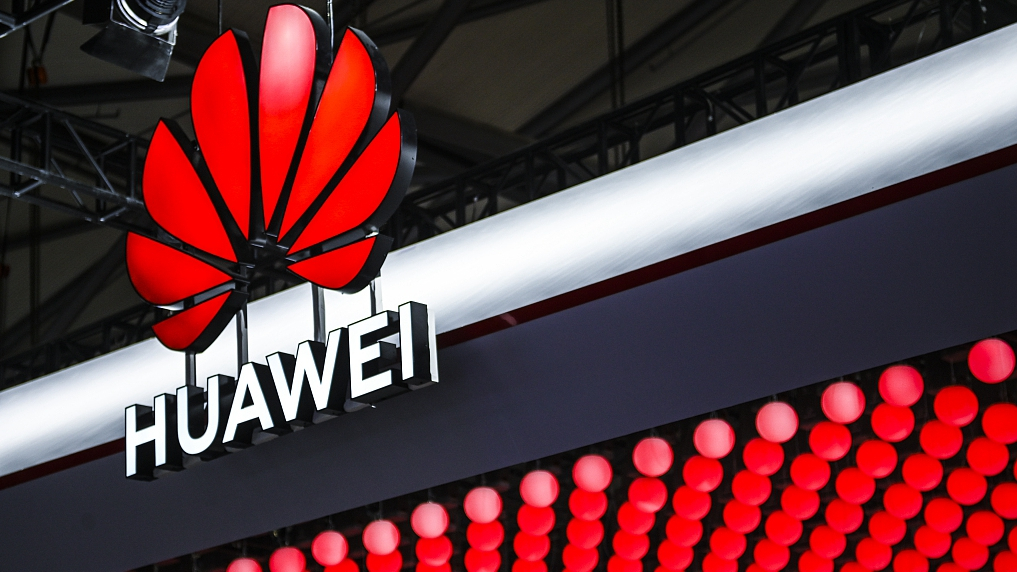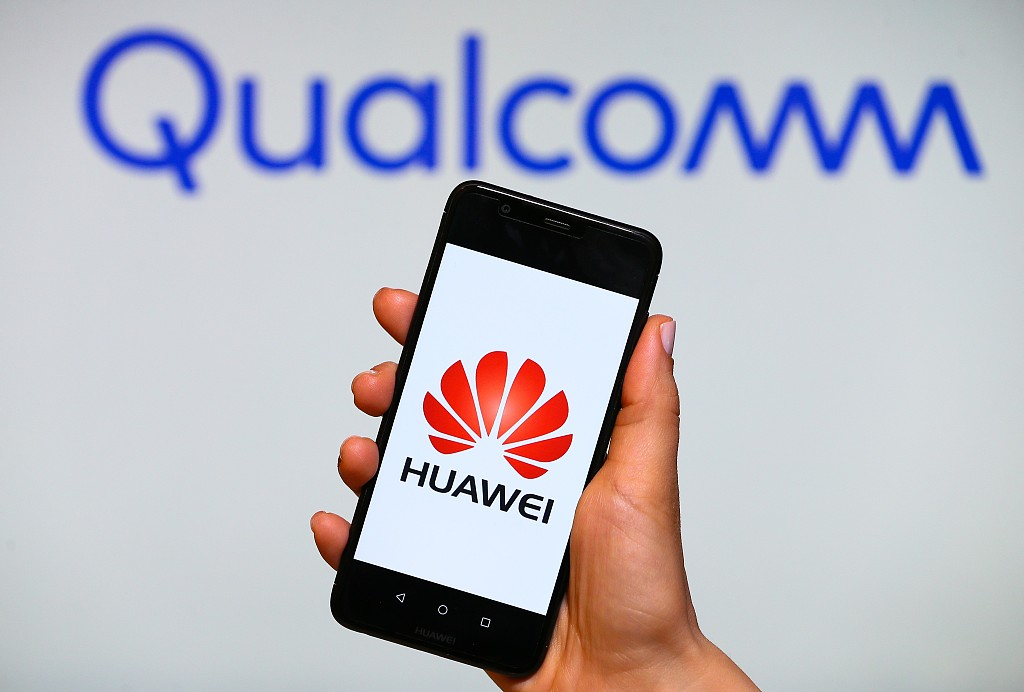

Editor's note: Tom Fowdy is a British political and international relations analyst and a graduate of Durham and Oxford universities. He writes on topics pertaining to China, the DPRK, Britain, and the United States. The article reflects the author's opinions, and not necessarily those of CGTN.
Last night President Donald Trump concluded a meeting at the White House with big American technology CEOs which involved the matter of Huawei. In attendance were Google, Qualcomm, Intel, Cisco, Broadcom, Western Digital and Micron Technology. The meeting primarily revolved staking out an agreement to resume sales to the Chinese telecommunications firm Huawei, which had been blacklisted on the "entity list" of the Department of Commerce in May.
However, after a G20 summit meeting with President Xi Jinping, President Trump agreed to resume sales to the company as part of negotiations on ending the trade war. As a result, a White House spokesperson reported that President Trump had "agreed" to a licensing provision to resume sales to Huawei.
But this outcome and the inclusion of the word "timely" begs the question, what now? The meeting was there for a reason, Trump’s decision provoked a backlash from American technology companies who relied on Huawei as one of their biggest customers. As a businessman, he was never going to ignore that.
However, the pathway forwards is not clear. The president faces continuing resistance from the "Washington" elite who are determined to keep the company banned on broader geopolitical motivations. In addition, Trump hopes that he can leverage Huawei more to extract trade concessions from Beijing, in particular the purchase of American agricultural products. This may leave both sides waiting for who will make the first move.

A Huawei mobile phone is displayed in front of logo of Qualcomm in Izmir, Turkey, May 28, 2019. /VCG Photo
Although the White House last night claimed that the Tech CEOs voiced "strong support" for Trump’s policies pertaining to Huawei, this is as ever dishonest on the administration's behalf. If that was truly so, why would such a meeting be held in the first place? Following Trump's "listing" of Huawei in May, newspapers reported widely that technology companies were dismayed at the decision and began aggressively lobbying the White House against it. With Huawei selling ever growing millions of smartphones, this pertained for these companies to a loss of not only the Chinese market, but a global one.
As a result, given Trump is at heart a businessman who professes to care about American profits, sales and jobs, he was quick to row back on his decision and make concessions. However, not everyone was pleased at this. The broader "Washington" elite reacted with a sense of outrage to the decision. Hawkish senators such as Macro Rubio and Mitt Romney sought immediately to propose legislation to reaffirm the ban, whilst analysts and commentators scrambled to pin more unfounded allegations on the company and reaffirm their narrative.
In anticipation for the meeting, a false story was leaked yesterday to the Washington Post claiming Huawei had engaged in secret business with the DPRK back in 2008. However, it was not prohibited under United Nations Security Council measures to such business until 2017. The story had a clear motivation: elite networks are working together to discredit Huawei and thus politically nullify Trump's decision to ban the company. Why? Because their goal is geopolitical, they want to see Huawei permanently excluded from the United States under exaggerated pretences to block China's advances in technology.
As a result, Trump finds himself locked between conflicting political pressures. On one hand the corporate community want him to make concessions; on the other the "Washington" circles from both parties are determined for him to stay tough.
Given this, the president is likely to look towards gaining concessions from China before giving any further ground, hence his use of the word "timely". A recent tweet indicates what he wants, complaining that Beijing has not "bought any agricultural products" as pledged. Of course on the other hand, China is also holding out carefully because the Osaka agreement made the unbanning of Huawei a precondition before anything else was given. This may create a gridlock whereby both sides sit and wait to see who will make the first move. However, there is no need to be pessimistic as neither will forfeit the opportunity to gain from the other.
As a result, progress on the Huawei issue may be slow. Still, the announcement is better than nothing. The prescribed "licensing" will at the least allow U.S. tech companies to resume sales of microchip technology to Huawei, operating systems such as android and so on. It will subsequently allow Huawei to continue its business globally without disruption. However, it is worth remembering with American politics being on edge against the company, nothing is guaranteed: Thus its paramount goal of becoming self-sufficient in equipment and diversifying its supply chains still remains as critical as ever.
(If you want to contribute and have specific expertise, contact us at opinions@cgtn.com.)

Copyright © 2018 CGTN. Beijing ICP prepared NO.16065310-3
Copyright © 2018 CGTN. Beijing ICP prepared NO.16065310-3